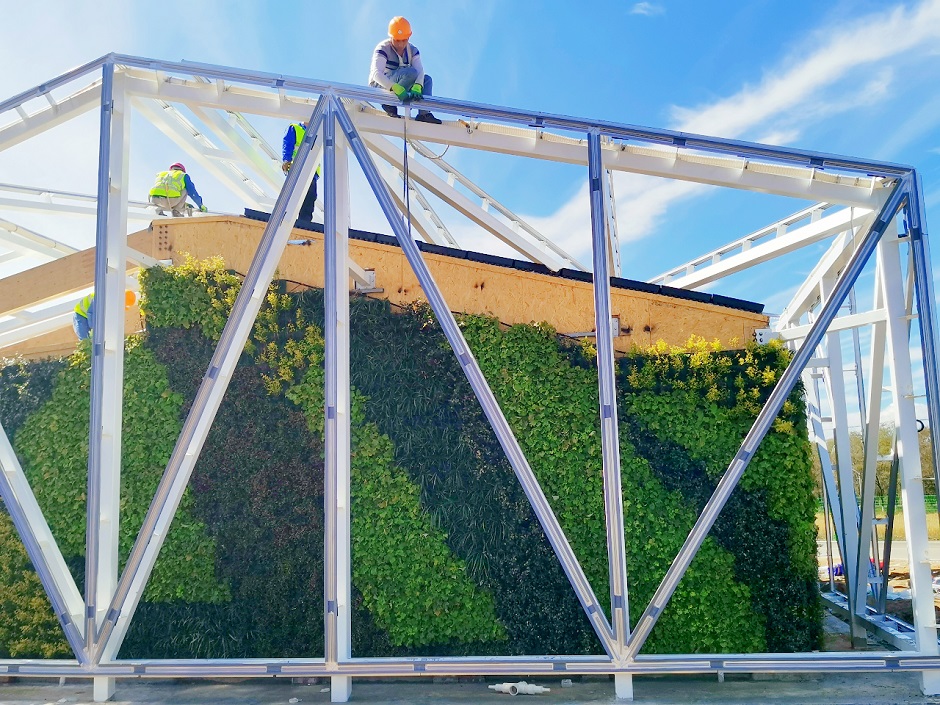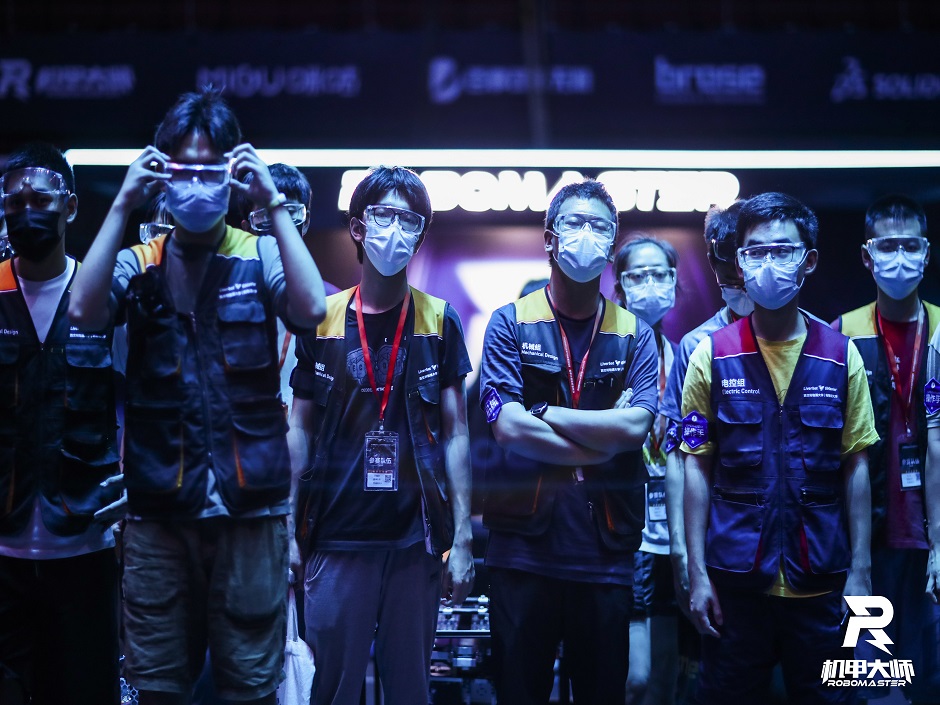13 Feb 2022
In the finals of 2021 Siemens Cup China Intelligent Manufacturing Challenge (CIMC), two undergraduate teams from Xi’an Jiaotong-Liverpool University won the grand prize in the enterprises category and the first prize in the collaborative robots (cobots) category respectively.
This is the first time XJTLU has won the grand prize at CIMC, standing out from nearly 6,000 competitors. Held by the Ministry of Education for 15 years, the Challenge is the largest and highest-level national competition in the field of intelligent manufacturing.
Dr Rui Yang at the Department of Intelligent Science and Dr Mengjie Huang at the Department of Industrial Design supervised the projects.

Left to right: Dr Rui Yang, Xia Zong, Su Wang, Hao Su, Ziying Gan, Yue Gong, and Dr Mengjie Huang
Technology for a better life
Xia Zong, a Year Four student in BSc Information and Computing Science and the leader of the grand prize team, says their project was designed to make life more comfortable, convenient and energy-efficient.
He and his team created a smart home control panel that mounts to a wall. By using facial recognition, voice access or the device’s touchscreen, users can control aspects of their home such as air conditioning, water heating, lights, and curtains.

The smart home control panel

The screen shows time, date, lights, temperature, and air conditioning
Su Wang and Hao Su, both Year Three students in BSc Information and Computing Science are responsible for the programming.
Wang says that in their first test, the system almost froze due to the large number of images.
“We did a lot of research to solve the problem, and eventually decided to use double buffering - a programming technique that can improve the efficiency of drawing graphics to the screen. To speed up the system further, we also separated the images that display on the screen from other content,” says Wang.
Apart from double buffering, they also designed several functions that can improve the user experience.
“For example, the command centre has an automatic climate control that measures the indoor and outdoor temperatures. The device can adjust screen brightness and timeout to save energy. There’s also an extra interface for phones and tablets that can add more functions in the future,” says Su.
Their design was recognised for its user-friendly interface, multi-platform network protocol and interactive experience. In the finals of CIMC, the team won the grand prize in the enterprises category and was awarded 10,000 RMB by Anyka, a leading microelectronics company in China.
Smart assistants for assembly lines
Ziying Gan and Yue Gong in BEng Industrial Design, and Jiayun Kang in BScInformation and Computing Science, designed robots for recycling wool fibres and packaging power banks. Their project won the first prize in the cobots category at CIMC.

The robot design
Gan, the team leader, says their design aims to process wasted woollen clothes by collecting and recycling wool fibres of different colours.
“Our robots can sort wool fibres according to the identified colours, so that when industries recycle the clothes, they will use fewer dyes, thus reducing manufacturing pollution,” she says.
Gan adds that the robots can also improve productivity. “Workers have different visual perceptions and colour sensitivities, whereas our robots identify and match colours to the standard colour charts, so it can reduce scrap and rework.”

Robots identifying fibre colours
Gan and Gong were responsible for research output, human-computer interaction, layout, and also visuals, such as storyboards, scene graphs and details of the model. Kang was in charge of technical issues, including the software and hardware configuration, programming, and project safety.
The participants were all excited to participate in the challenge. “We explored interdisciplinary cooperation and expanded our knowledge,” she Gan says. “Industrial design is a comprehensive discipline, so the more I know, the more it will benefit my future work.”
Before the Challenge, XJTLU was selected as one of the campus hubs of the event. The University organised exchange and sharing activities focused on intelligent manufacturing technologies, and teachers and students could get further training.
By Yi Qian and Huatian Jin
Translated by Xiangyin Han
Edited by Xinmin Han and Patricia Pieterse
Photos and images courtesy of undergraduate teams
13 Feb 2022
RELATED NEWS

Students unite in ‘Olympic’ contest for sustainable homes
Zhangjiakou, one of the three main 2022 Winter Olympics events sites, is also host to another “Olympic” game – one that has united students internationally i...
Learn more

Best score ever: Undergraduates from XJTLU and UoL win second prize in RoboMaster 2021
At the 2021 RoboMaster University Championship held in Shenzhen, G-Master, an international undergraduate student team whose members come from Xi’an Jiaotong...
Learn more








